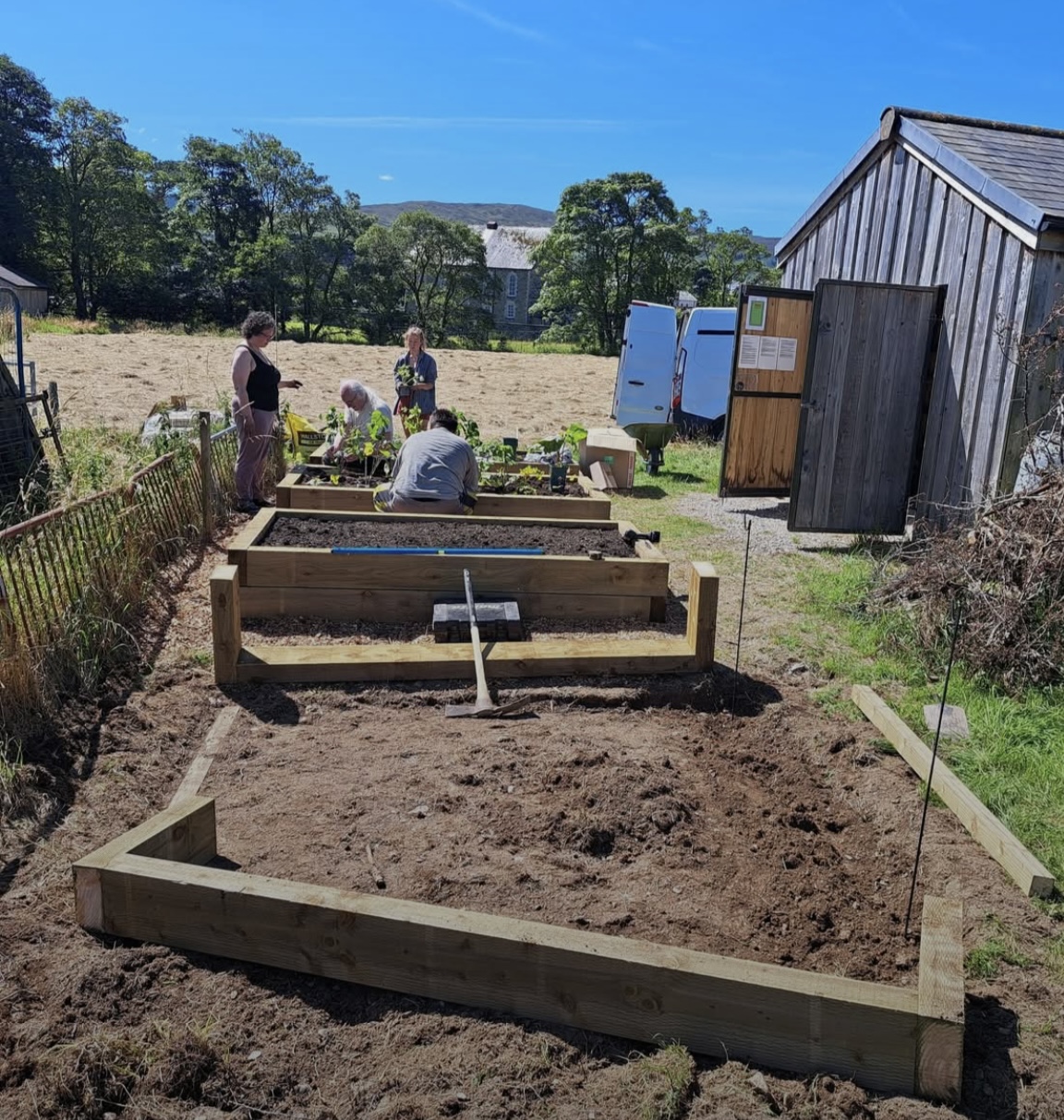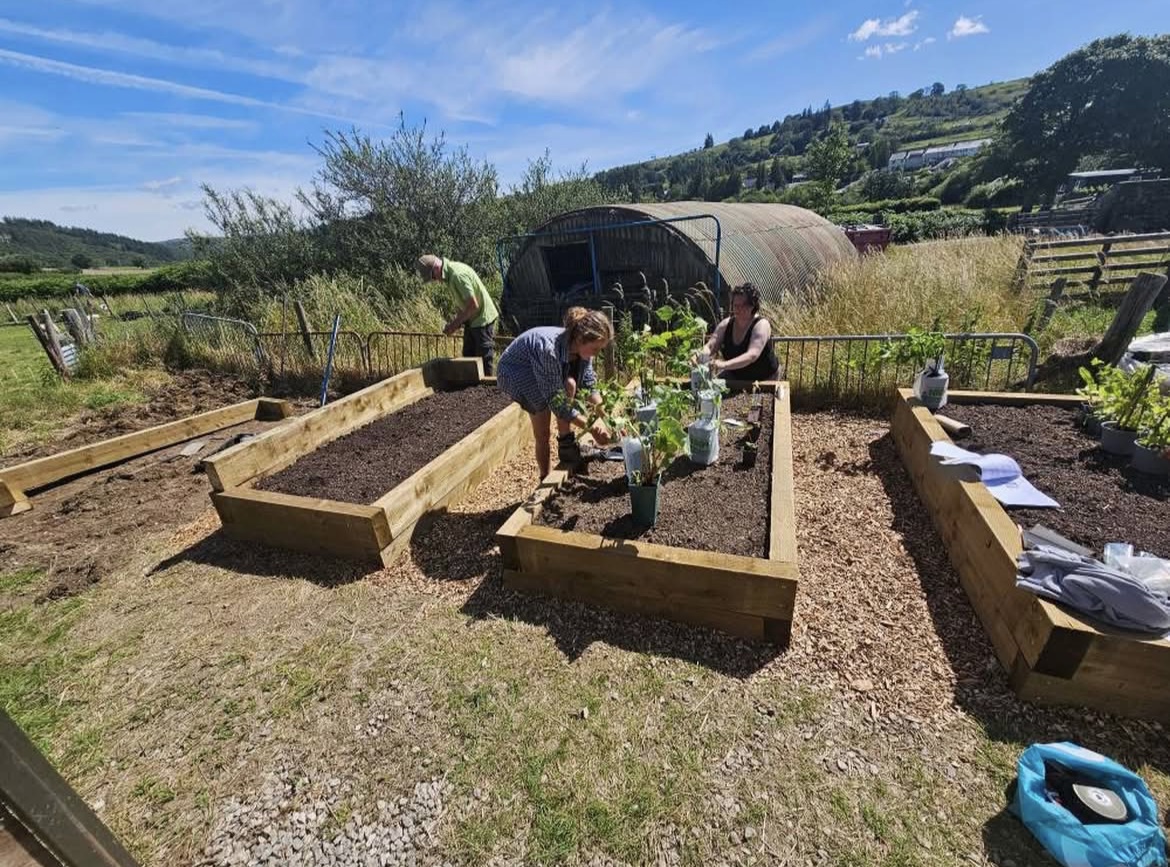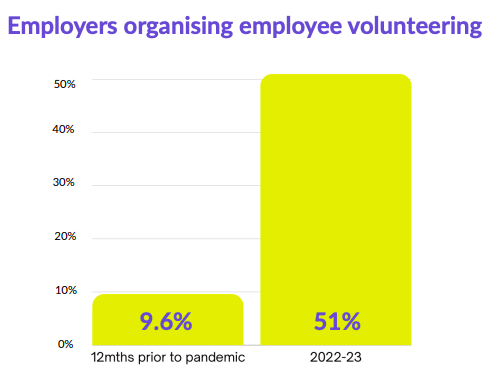I Got Paid to Volunteer and It Changed my Life. Now it’s Your Turn.


I’m Emily, a market garden grower, nature connection advocate and sustainability writer. All these things, which are now core to my identity, I have volunteer schemes to be thankful for.
And better yet, I was actually paid by my employer Alpkit to do the volunteering! Read on to find out more about employer-supported volunteer schemes and tips on how to get one in your own workplace!

My Volunteer journey:
I didn’t start volunteering until I joined the Alpkit team a couple of years ago. The volunteer scheme was introduced to me during my initial interview, and I was stoked about the opportunity to try something a bit different, while still being paid. The concept is simple. For a few days of each year, every staff member has the opportunity to volunteer for a charity within their working hours. For me, it was also a strong indicator that Alpkit’s social and environmental ethos wasn’t just a marketing ploy, but that they were actually at the forefront of redefining what we should expect from business ethics.
Whilst using the scheme, I supported my local community allotment with maintenance, as well as providing remote support to Climate Cymru (which included writing this article, so I could share the joys of volunteering with you!).

The contrast of the two projects really emphasises the wealth of opportunities I had at my disposal. This is what makes employer-supported volunteering so powerful: it allows staff members to develop skills and aspirations which reflect their core values.
Here are three key benefits I have noticed since volunteering:
1. Building skills through volunteering
Whilst volunteering with Climate Cymru, I found space to explore my role in climate and ecological action. Taking part as a volunteer was really pivotal for me, because it gave me room to try new things, make mistakes and learn, all while being surrounded by a supportive community who genuinely cared.
A year ago, I would have never imagined having the confidence to set up meetings with politicians, applying for grant applications, and publishing my writing online, but with the infectious drive of the Climate Cymru team, I did just that.
2. Fresh Ideas and Inspiration
In our workplaces, it’s easy to fall into the grooves of daily tasks, deadlines and targets. My volunteer days provided a breath of fresh air and a chance to look at things differently. Being around different communities and meeting new people helped to open my eyes to problems and solutions I wouldn’t have considered at first in the store.
Combine these sparks of ideas with my newly tuned set of skills, and I had the capacity to make our day-to-day more creative and dynamic. This included trying out new note-taking systems and just generally feeling more confident to take on more responsibility in activities like event planning.
3. Building Agency
When faced with the scale of the climate and ecological crisis, it’s easy to feel overwhelmed. One way to overcome this is by taking part in small acts of good, like picking litter one morning, or building raised beds for the community to enjoy. Since volunteering, I have transitioned from feeling helpless to seeing myself as an active citizen within my community, with the power to make solutions happen.
One of my proudest moments as a paid volunteer was applying for a kitchen garden grant for our allotment site. I had never applied for a grant before, so the application felt like a pipedream, but we were successful, and work is now underway. It’s so energising to see the impact you can have on your small corner of the world, and having a concrete sense of purpose within my local area.
It’s no surprise that the NHS is increasingly using volunteering as a form of social prescribing, to help boost people’s confidence and redefine their sense of purpose. Researchers compiled numerous studies focusing on the emotional impact of volunteering. Results showed a trend of volunteering being associated with purpose, self-esteem, pride and empowerment, and reductions in depression (Stuart et al., 2024).

Why Employers benefit
Employer- supported volunteering isn’t just beneficial for employees, it also brings real value to the company. Volunteering has challenged me to develop an array of skills, including collaborating productively in virtual teams, improving strategic communications skills, and supporting partnership connections. These are all soft skills that I can use to leverage momentum within my own team’s goals.
At the same time, being involved with the local community means the team is more aware of local challenges and contexts, which I believe makes us more dynamic and resilient as a team. For example, many of the events we have hosted, including bike maintenance courses and kit repair workshops for scout groups, have resulted from discussions had with the community. Being integrated into the community allows us to identify challenges faced, and utilise the skills and resources we have available to meet local needs.
Why paid support matters
“It feels like a wholesome holiday giving back”
One of the biggest barriers to traditional, unpaid volunteering is the time and financial resources. As one colleague put it:
“To be honest, after years of working in a city where I never felt like I had the time or energy to volunteer, this has been a huge change! Being able to combine the volunteering with a creative outlet locally has been amazing […] [Alpkit’s volunteer scheme] has made it less stressful to fit in time to support our local community. [I Appreciate] Not having to feel like I’m ‘working’ when volunteering but knowing I don’t have to be concerned about finances […]I look forward to the time I book off for volunteering. It feels like a wholesome holiday giving back”
What’s more, employer- supported volunteering provides a safety net that helps to protect mental health. Research shows that while volunteering has the potential for all the positive benefits mentioned, younger people are at risk of burnout if they lack support through the experience (Stuart et al., 2024).
Conclusions and How to Take Action
Employer supported volunteering transforms what it means to be a volunteer, making opportunities inclusive and impactful (for the employees, the community and the company). Each year, staff can look forward to challenging their skills, a fresh burst of inspiration, and new social connections. Meanwhile, Charities benefit from time and expertise, and Alpkit can thrive with its engaged, dynamic workforce.

Employer supported volunteering is growing, with over half of UK employees now working with companies that have a form of volunteer programme, a sharp rise since before the pandemic (Works4U, 2022-2023).
On the other hand, the same report by Works4U report 2022-2023, almost 95% of responders to the survey stated that their employers should do more to promote volunteer schemes available in the company. With this in mind, do you know what volunteer schemes are available within your workplace? If there isn’t one, is this something you could pitch?
Here are some tips for if you pitch a volunteer scheme to your workplace:
- Do some the heavy lifting: Make things easier for your employer by providing suggestions on how to implement the scheme (for example, how employees could apply). This could be modelled on another company’s scheme, such as Alpkit’s.
- Show there’s psych: Discuss the scheme with your co-workers to generate interest, which you can draw on when you make the request.
- Emphasise Alignment to the company’s values: Use any of the points I have made throughout this article, and highlight the benefits of being integrated into the community (for example, building trust and familiarity with customers to keep them returning).
- Bonus tip from my manager: “Reach out to others who offer the scheme, be specific with how the system works from the get go to avoid issues. Keep the process of logging the hours simple.”
With these practical steps in mind, you can start to imagine the real difference a volunteer scheme could make. What would your community look like if every business supported its employees to give back? What would your public spaces look like? Would there be new events hosted, additional facilities provided? What social connections could form within the community? What ongoing challenges could be overcome?
Employer Supported Volunteering is one way to make that vision a reality.
References:
Stuart, J., Kamerade, D., Connolly, S., Paine, A.E., Nichols, G. and Grotz, J., 2020. The impacts of volunteering on the subjective wellbeing of volunteers: A rapid evidence assessment.
Works4U Employee Volunteer Report 2022-2023: https://www.works-4u.com/_files/ugd/8b6c8c_38c5f4032fe7418183cc38103a6cb53b.pdf
NHS 2025. Social Prescribing [Online] Available at: https://www.england.nhs.uk/personalisedcare/social-prescribing/
Graffiti Image: ‘Do it for Others’ by Poppy Chancellor
Protect what you love
Tell our leaders to protect the Wales we love from the climate and nature emergency. Send a giant ice heart to the Senedd to show them just how much you care.
Add your voice

We use cookies to improve your experience and deliver personalized content. By using this website, you agree to our privacy policy.
